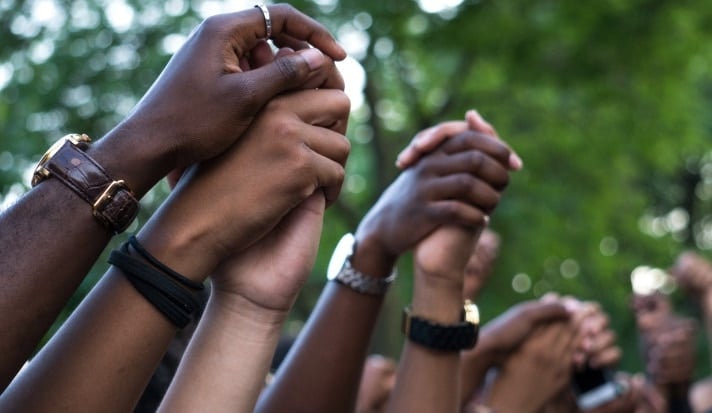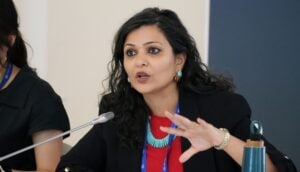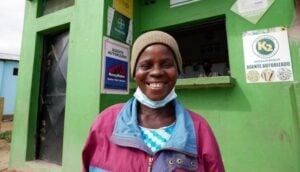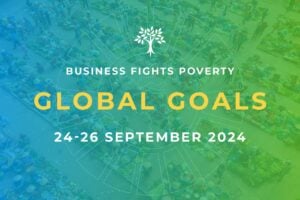Like you, we have looked on with horror and anger at the events that have been unfolding in the US. The horrific murder of George Floyd, the latest in a sad history of black people being killed by those meant to protect and serve. As the lawyer of the Floyd family put it at yesterday’s memorial service, it was “not the coronavirus pandemic that killed George Floyd, it was that other pandemic: the pandemic of racism and discrimination.”
At Business Fights Poverty, we believe that there is no place for racism in society and that businesses must be actively anti-racist and need to work collaboratively to fight it. It has been encouraging to see companies and our fellow organisations working in the social impact space coming out unequivocally to say that they believe, like we do, that Black Lives Matter.
Yet making statements, or blacking out social media for a day, or even giving large philanthropic donations, is not enough. And it is not enough for two reasons.
First, racism is systemically and culturally ingrained in our societies, systems, beliefs and biases. It interplays in complex ways with gender and class to structurally lock people into poverty and disadvantage. Defending the system from accusations of racism, as a Trump adviser did a few days ago, by saying the policemen who killed George were “bad apples”, is as untenable as heralding change by pointing out the few black individuals, including Obama, who have made it to positions of power and influence.
Fundamentally, racism and discrimination in the US and around the world are built upon the foundations of centuries of structural oppression – from the terrors of slavery and colonisation to the biased nature of the criminal justice system and unequal access to education, health and economic opportunity. These have left an ingrained unfair disadvantage for black people and an unfair advantage for white people.
That brings me on to the second reason why making statements and giving cash is not enough. Calling for change is always easier than looking in the mirror and changing ourselves. We must recognise and address the dark truth that the social impact industry itself rests upon and in some ways serves to perpetuate these structural issues. We give from a position of power, and sometimes our giving protects the status quo. As an article shared by my colleague, Myriam Sidibé, argues, citing Martin Luther King, “white moderates” can be the biggest barrier to change. The Reverend Al Sharpton said in his powerful eulogy for George, “there’s a difference between those calling for peace and those calling for quiet. Some of y’all don’t want peace, you just want quiet.”
So where does that leave us? It means that we cannot deal with systemic racism through words and philanthropy, alone, but through action that includes a hard and honest look at our core businesses, systems and processes. It means we must listen to black people to understand how best we can act as allies in the fight against racism.
At Business Fights Poverty, we will deepen our efforts to integrate an analysis of race into our collaborative fight against poverty. We will use our voice and the power of our collective platform to call for action to tackle systemic inequalities. And we will do better in making ours a platform that is more diverse and inclusive; in the same way we have focused on gender equality in the representation on our event panels and activities, we will place an emphasis on racial diversity. But above all we will be better at listening, so that we may better understand how we can take a stand in the fight against this other pandemic.









